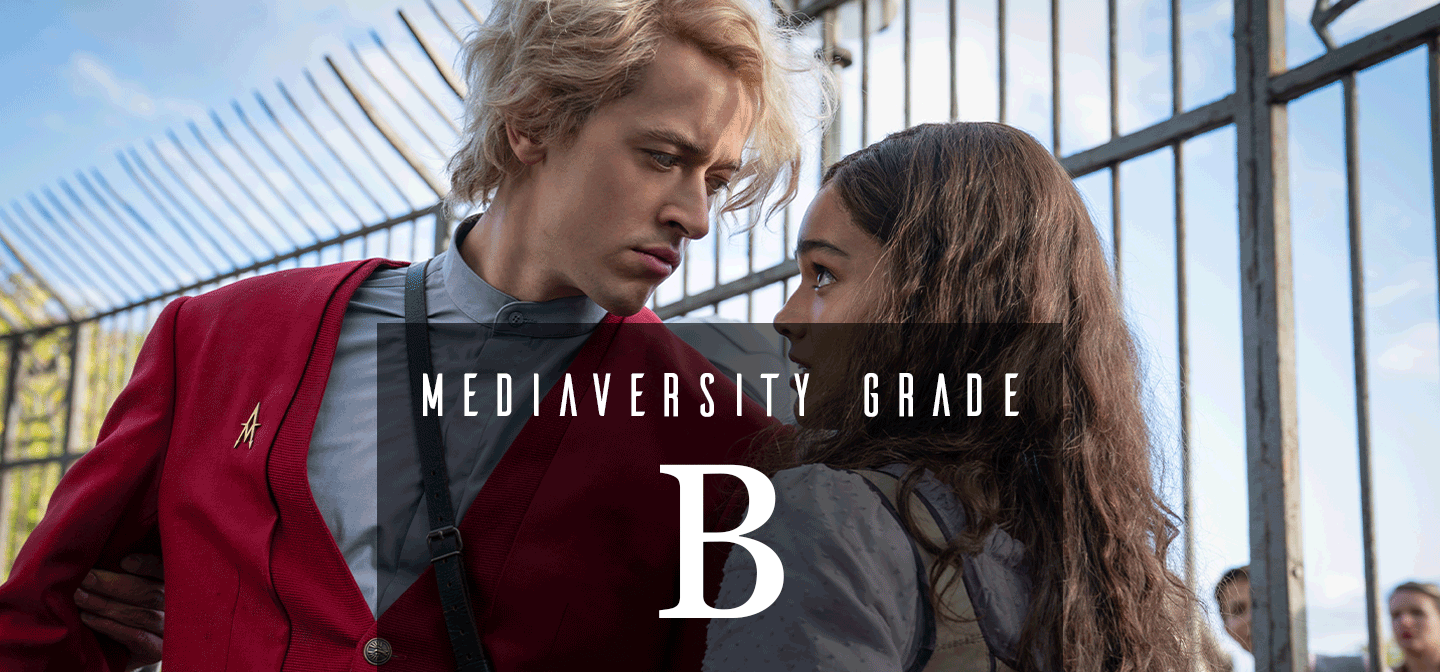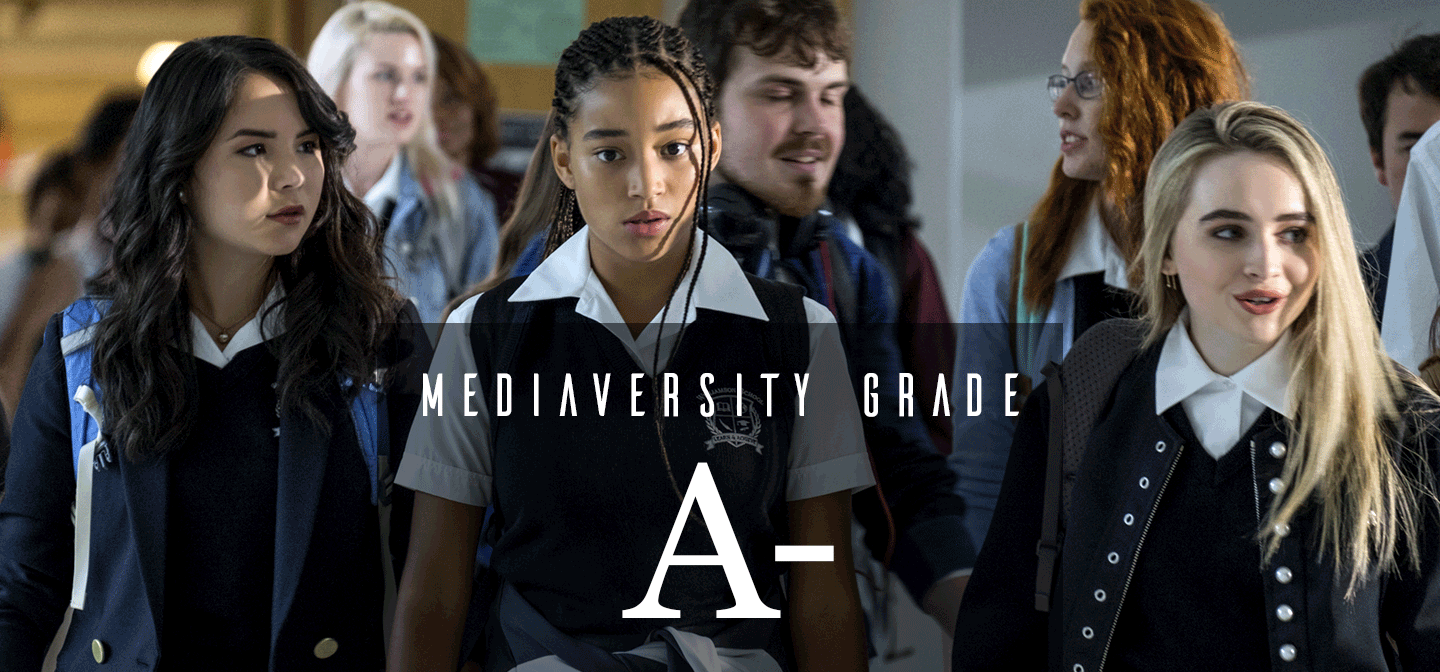The Hunger Games: The Ballad of Songbirds & Snakes
“Thrilling, dark, and visibly diverse, The Hunger Games: The Ballad of Songbirds & Snakes makes for an enjoyable update to the blockbuster trilogy.”
Title: The Hunger Games: The Ballad of Songbirds & Snakes (2023)
Director: Francis Lawrence 👨🏼🇦🇹🇺🇸
Writers: Screenplay by Michael Lesslie 👨🏼🇬🇧 and Michael Arndt 👨🏼🇺🇸 based on the book by Suzanne Collins 👩🏼🇺🇸
Reviewed by Li 👩🏻🇺🇸
Technical: 4.25/5
When I saw that the newest Hunger Games movie clocked in at 2 hours and 37 minutes, I inwardly sighed. But to director Francis Lawrence’s immense credit, I hardly felt the passage of time as I sat riveted by the origin story of villain Coriolanus Snow, played by Tom Blyth. The Hunger Games: The Ballad of Songbirds & Snakes marks the prequel to Lawrence’s blockbuster trilogy, which was released in four parts from 2012 to 2015 based on the popular books by Suzanne Collins.
Although you won’t find bright colors or cinematic razzle dazzle in The Ballad of Songbirds & Snakes, the somber visuals sufficiently reflect the dread that accompanies any story about how a supervillain comes into power. Having met Snow—previously played by Donald Sutherland—audiences are likely well acquainted with his role as the sinister president of Panem, who rules from his perch in the Capitol some 60 years after the events of this prequel. There, he presides over the ongoing ritual of “The Hunger Games,” where privileged Capitol denizens look down on the impoverished people living in the outer Districts and force them into brutal battles to the death for their televised entertainment. Knowing that this is the future for everyone we meet in The Ballad of Songbirds & Snakes, any snatches of beauty or hope are brief, just enough to keep us invested in its main characters.
It’s here where we meet a younger and more innocent Coriolanus, who’s an entitled (if financially destitute) Academy student forced to mentor a “tribute,” someone from the Districts selected to fight in The Hunger Games. He’s assigned a pure-hearted musician from District 12 named Lucy Gray Baird (Rachel Zegler), and as the two are thrust into harrowing “kill or be killed” situations, they’re pressurized into their truest selves, the good and the bad.
Straightforward but impactful writing makes it easy to fall in love with this young couple. Whether or not you’ll enjoy watching their preordained demise, however, will be up to the individual. Either way, this action-packed journey is dark, grisly, and engrossing.
Gender: 3.5/5
Does it pass the Bechdel Test? YES
Characters in the film generally stick to archetypes, and only its male anti-hero, Coriolanus, sees any development. That leaves women in significant but two-dimensional roles. Female lead Lucy Gray, though given plenty of screen time and star power as Zegler sings haunting solos throughout the film, easily becomes a symbol for Coriolanus’ moral compass. Viola Davis gleefully plays cartoon villain Dr. Volumnia Gaul with an important role, but one that exists to draw Coriolanus to the dark side.
Cousin Tigris Snow has an even smaller part, but she’s a bright spot in this male-driven narrative and is played by trans actor Hunter Schafer. Tigris has one of the few complex roles, portrayed as a girl who loves her cousin and who has an eye for fashion. She’s neither good nor evil, as she witnesses Coriolanus’ descent into darkness with disappointment but does nothing to stand up for what’s right.
Finally, the film extends its modern take on gender into costume design. The elite Academy school that Coriolanus attends uses a gender-neutral uniform that’s worn by all its students: a blazer worn over a kilt-and-trouser combo.
Lucy Gray (center) and Coriolanus (right) wearing his Academy uniform
Race: 3.75/5
Although written and directed by white filmmakers, and starring a white main character, Latino and Black actors have important roles. Zegler (Lucy Gray) is Polish-Colombian American, Davis (Dr. Gaul) is African American, and Coriolanus’ kindhearted friend, Sejanus Plinth, is played by California-born Puerto Rican actor Josh Andrés Rivera.
Among the film’s 24 tributes, several are people of color, with Black characters like Jessup (Nick Benson) and Reaper (Dimitri Abold) receiving more than a few scenes apiece. In a minor role, Taiwanese American Ashley Liao plays an unscrupulous Academy student. Despite this racial diversity, however, the film employs the safe but shallow colorblind approach that blunts its positive effects.
Bonus for LGBTQ: +0.50
As mentioned in above, Schafer’s casting is a welcome decision that gives LGBTQ actors access to a broader range of roles, not solely stories that revolve around queerness. While it does feel less radical to hire someone who already fits into society’s standards of beauty—thin, white, and femme—Tigris remains one of the film’s more interesting characters. It’s wonderful to see this nuanced role go to a trans woman.
Tigris
Bonus for Disability: +0.25
Similar to its approach to racial and LGBTQ inclusiveness, The Ballad of Songbirds & Snakes populates its world with disabled characters but avoids any deeper discussions around how it affects individuals’ lives. In its most prominent role, Coriolanus’ jaded professor, Dean Casca Highbottom, is played by Peter Dinklage, who’s a little person. Among the tributes, we meet a sweet girl named Wovey, played by Sofia Sanchez who has Down Syndrome. Minor characters have limb differences or are missing an eye. Unfortunately, given the nature of so many of them being tributes who are pitted against each other in The Hunger Games, you can probably guess how many disabled characters make it out of the movie alive. (Hint: Not a lot.)
Mediaversity Grade: B 4.08/5
Thrilling, dark, and visibly diverse, The Ballad of Songbirds & Snakes makes for an enjoyable update to the blockbuster trilogy that made its mark on the 2010s.






